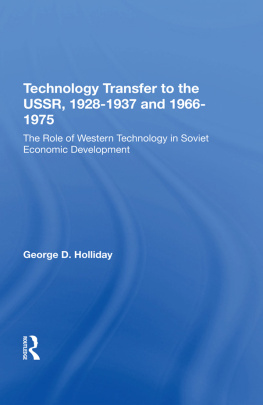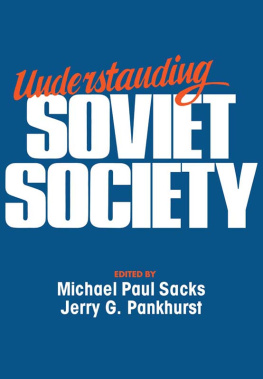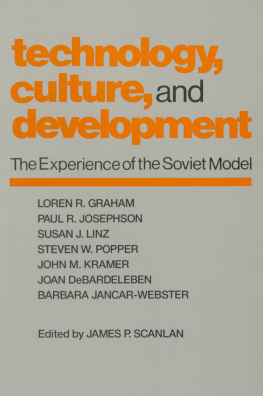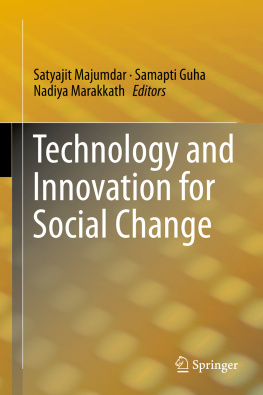First published 1992
by M.E. Sharpe
Published 2015
by Routledge
2 Park Square, Milton Park, Abingdon, Oxon OX14 4RN
711 Third Avenue, New York, NY 10017, USA
Routledge is an imprint of the Taylor & Francis Group, an informa business
Nick Lampert and Gbor T. Rittersporn 1992. All rights reserved.
No part of this book may be reprinted or reproduced or utilised in any form or by any electronic, mechanical, or other means, now known or hereafter invented, including photocopying and recording, or in any information storage or retrieval system, without permission in writing from the publishers.
Notices
No responsibility is assumed by the publisher for any injury and/or damage to persons or property as a matter of products liability, negligence or otherwise, or from any use of operation of any methods, products, instructions or ideas contained in the material herein.
Practitioners and researchers must always rely on their own experience and knowledge in evaluating and using any information, methods, compounds, or experiments described herein. In using such information or methods they should be mindful of their own safety and the safety of others, including parties for whom they have a professional responsibility.
Product or corporate names may be trademarks or registered trademarks, and are used only for identification and explanation without intent to infringe.
Library of Congress Cataloging-in-Publication Data
Stalinism:its nature and aftermath:essays in honor of Moshe Lewin
edited by Nick Lampert, Gbor T. Rittersporn.
p. cm.
Includes index.
ISBN 0-87332-876-0
1. Soviet UnionSocial conditions1917- 2. Soviet Union
-Politics and government1917- 3. CommunismSoviet Union.
4. Perestroika. I. Lewin, Moshe, 1921- . II. Lampert, Nicholas.
III. Rittersporn, Gbor Tams, 1948- .
HN523.S684 1992
30B'.0947dc20 91-15051
CIP
ISBN 13: 9780873328760 (hbk)
Nick Lampert
In this volume a number of specialists in Russian and Soviet studies acknowledge their debts to a scholar who has been an inspiration in their field over the past twenty-five years, and who, approaching the start of his eighth decade, continues to work with undiminished vigour. The contributors - from the USA, Continental Europe and Britain - are not all well-known to each other, but they share one thing: a respect for the work of Moshe Lewin, who has greatly enriched our understanding of Soviet history and thus of the recent transformations in the USSR.
The title of our Festschrift relates to a central preoccupation in Lewin's work - the inter-war period of social and political upheaval which made a profound impact upon the character of the Soviet system. But the scope of Lewin's contribution is even broader than this suggests. It moves backwards and forwards in the attempt to grasp the overall dynamic of Soviet history, the relationship between Stalinism and the Tsarist past, and the ways in which, in its very formation, Stalinism prepared the ground for its demise.
There are several distinguishing features of Lewin's approach, which together make up a powerful synthesis. Starting with his first book, Russian Peasants and Soviet Power, published when the author was already in his forties and had a rich and varied life experience behind him, he brought to Soviet studies a new sense of the interplay of socio-economic, cultural and political forces. The cold-war climate of the post-war period had encouraged a singularly one-dimensional approach to the study of the Soviet Union in the West - an approach in which the 'total' claims of Soviet ideology and politics were all too often taken at face value. This perception, whether given a plus or a minus sign, was so strong that for many of us (the editors included) the first acquaintance with Lewin's work in the late 1960s had the quality of a revelation. For the first time we gained a sense of the complex relationship between political and social developments and the dynamic that they contained. Such a dynamic might be taken for granted in other contexts, but it had been successfully screened out of public consciousness by the cold war and by sheer ignorance about Soviet society that prevailed in the West.
Along with this multi-dimensionality there is another very attractive quality in Lewin's approach; a view of history from the bottom up as well as from the top down. He showed, with Lenin's Last Struggle, that he could tell a story about the political leadership as well as anybody. Yet it is the sense of becoming acquainted with ordinary people that is so refreshing in his work as a whole, a quality which is well conveyed in his collection of essays, The Making of the Soviet System. The 'grey masses' of Soviet society are not grey. All of them - whether peasants, workers, bureaucrats or intellectuals - are actors in the historical drama. All have been pushed about and harassed, their lives strongly affected - sometimes in murderous ways - by the grandiose schemes of the Soviet state, especially during the Stalin period to which this volume is primarily devoted. And yet these grey masses, including the bureaucratic servants of a highly centralised party and state machine, have constantly thwarted the efforts to control them and make them more predictable. People react to the world in their own way. By the same token, there has never been just one ideology in the Soviet Union, but a multiplicity of ideologies emerging from the variety of life experience of different groups and classes. Lewin's history is a 'popular' history in the best sense, imbued with a powerful humanism.
Much of this can be understood in the light of Lewin's own background. He was born in Wilno, then in Poland, in 1921, and lived there for his first twenty years. After fleeing eastwards from the Germans in June 1941, he ended up in provincial Russia. For two years he worked successively on a kolkhoz, in an iron-ore mine and in a metallurgical factory (as a blast-furnace operator), and in the summer of 1943 enrolled in the Soviet army. He was sent to officers' school and was promoted on the very last day of the war. During these five years he lived and worked close to the people, in his own words 'sharing their misery and hopes, learning about their uglier sides sometimes, but very often enchanted by their generosity and... their grandeur'.
In 1946 Lewin left the USSR for Poland and later for France, working in both countries among young people interested in life on kibbutz-farms in Palestine and Israel. During his teens he had been active in left-wing Zionist politics, which provided both an antidote to the virulent anti-semitism in Wilno under Polish rule, and a framework for a much broader socialist commitment. In 1951 he left for Israel where he spent ten years, working on a kibbutz and as a journalist, followed by studies in economics, history and philosophy.











